Filter by
The language used throughout the course, in both instruction and assessments.
Explore the JSON Course Catalog
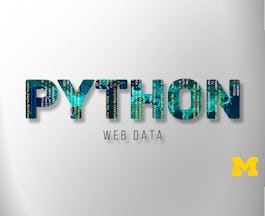

University of Michigan
Skills you'll gain: Web Scraping, JSON, Extensible Markup Language (XML), Network Protocols, Data Access, Application Programming Interface (API), Restful API, Data Processing, Scripting, Python Programming, Development Environment, Software Installation
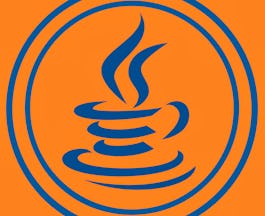

Codio
Skills you'll gain: Apache Maven, JSON, JUnit, Java Programming, Java, Restful API, Integrated Development Environments, Programming Principles, Data Structures, Object Oriented Programming (OOP), Network Protocols, Unit Testing
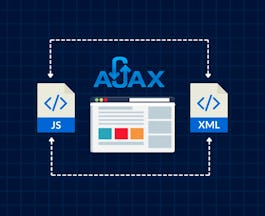

Board Infinity
Skills you'll gain: Ajax, jQuery, Web Applications, Javascript and jQuery, JSON, Extensible Markup Language (XML), Javascript, Web Development, Front-End Web Development
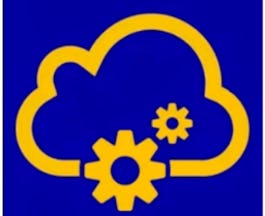

LearnQuest
Skills you'll gain: Simple Object Access Protocol (SOAP), Restful API, Web Services, Hypertext Markup Language (HTML), HTML and CSS, Java Platform Enterprise Edition (J2EE), Software Design, Extensible Markup Language (XML), Application Programming Interface (API), API Design, JSON, Service Oriented Architecture, Software Architecture, Java, Web Design and Development, Web Applications, Front-End Web Development, User Interface (UI)
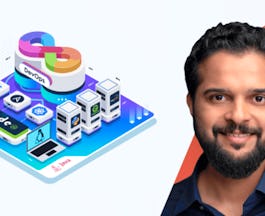

KodeKloud
Skills you'll gain: Linux Administration, Devops Tools, General Networking, Linux, Linux Commands, Software Development Tools, Systems Administration, Network Administration, Application Development, Unix, TCP/IP, Network Troubleshooting, Package and Software Management, Application Servers, Development Environment, Command-Line Interface, Java Programming, Node.JS


Microsoft
Skills you'll gain: ASP.NET, .NET Framework, Server Side, Application Programming Interface (API), Back-End Web Development, Restful API, C# (Programming Language), Microsoft Visual Studio, Application Frameworks, JSON, Software Documentation, Programming Principles, Extensible Markup Language (XML), Application Security, Debugging
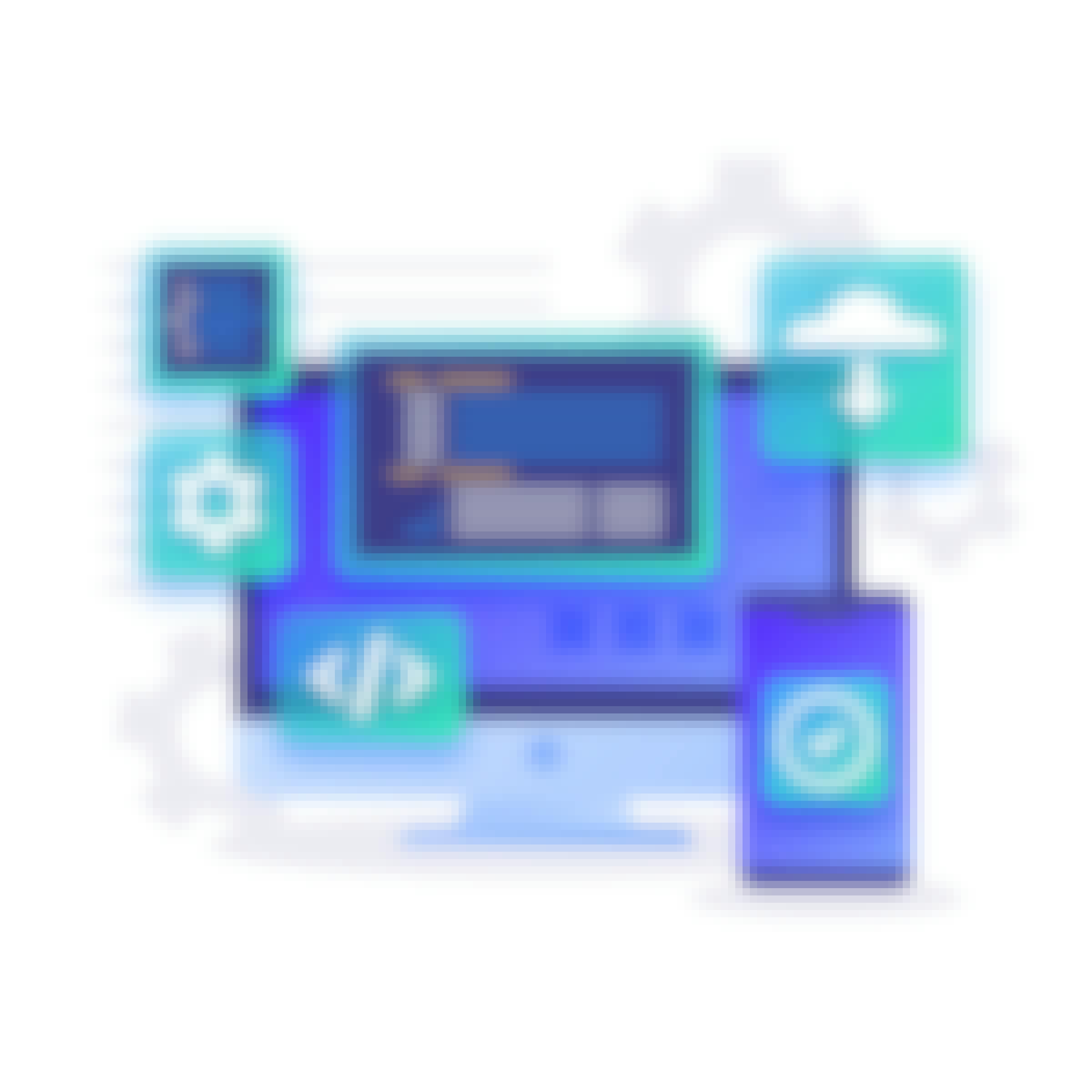
Skills you'll gain: Node.JS, Scalability, Authentications, JSON, Authorization (Computing), Web Development Tools, Web Applications, Web Development, Server Side, Secure Coding, JavaScript Frameworks, Back-End Web Development, Application Frameworks, Performance Tuning, Javascript, Restful API, Development Environment, Event-Driven Programming, Operating Systems, Integrated Development Environments
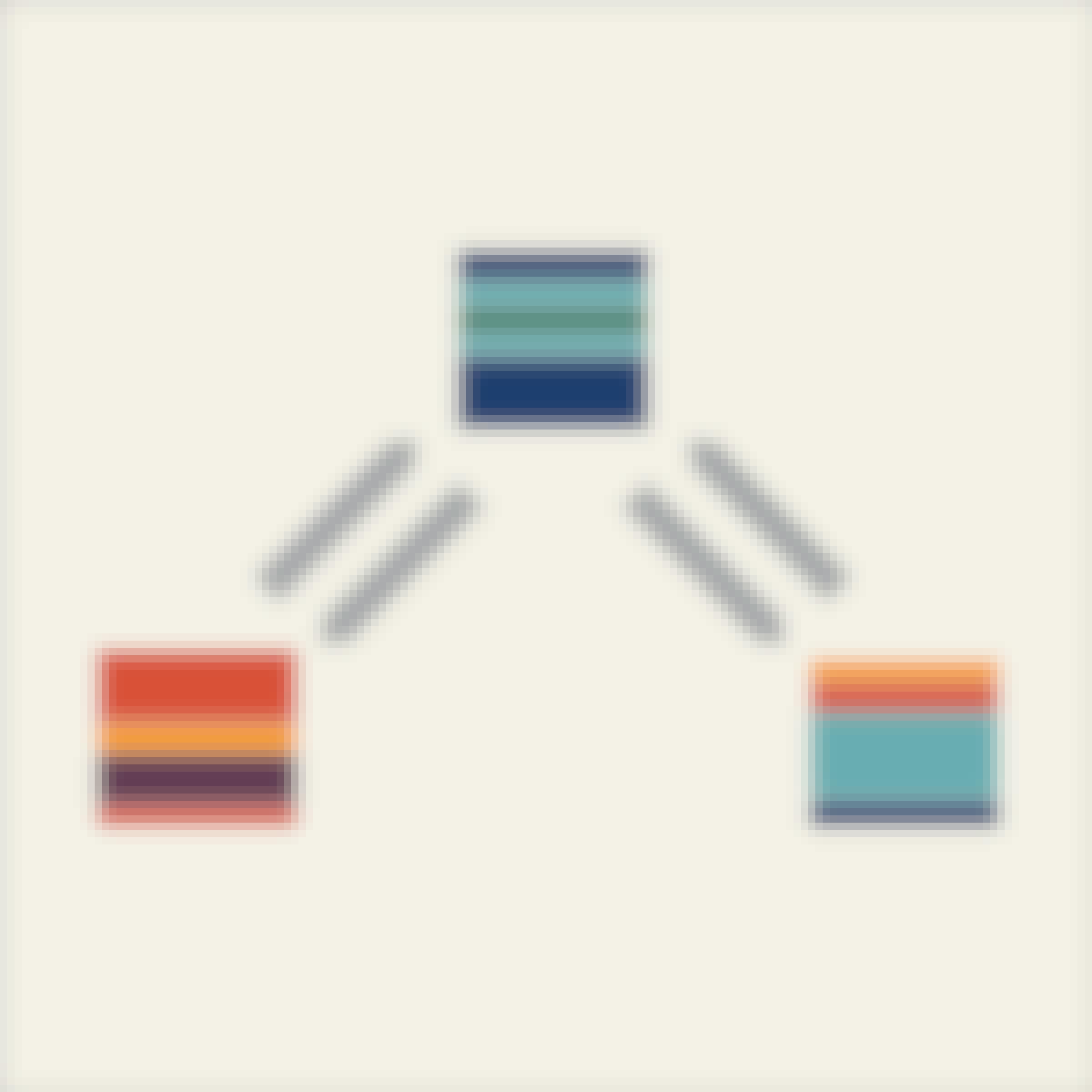

University of Virginia
Skills you'll gain: Application Programming Interface (API), Javascript, Web Applications, User Story, Prototyping, Business Logic, Model View Controller, Ajax, Cloud Applications, Google App Engine, JSON, Software Design Patterns
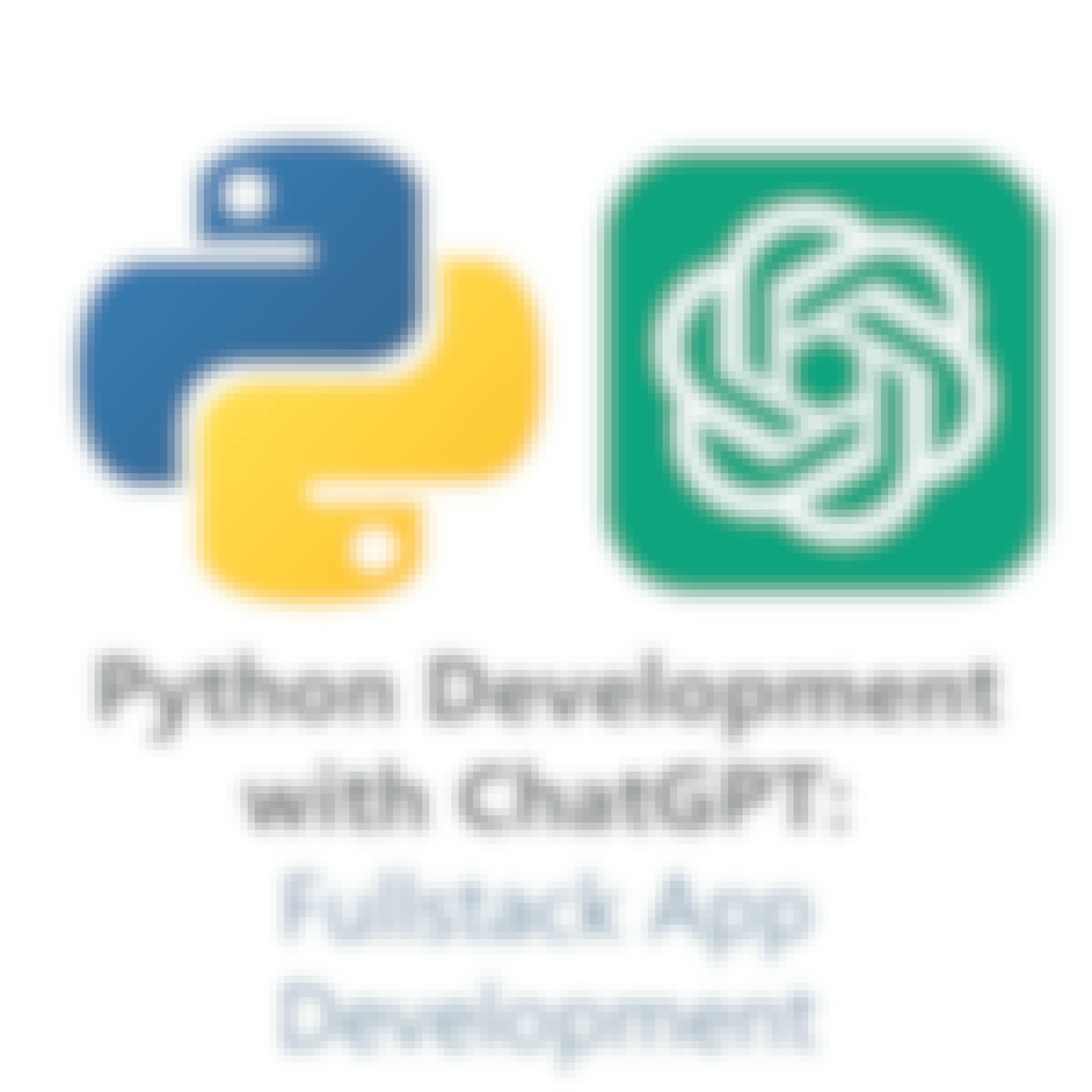 Status: Free
Status: Free
Coursera Project Network
Skills you'll gain: Application Programming Interface (API), Restful API, ChatGPT, Generative AI, JSON, Full-Stack Web Development, Application Deployment, User Interface (UI), Python Programming, OpenAI, Web Applications, Web Development, Application Development, Debugging


Vanderbilt University
Skills you'll gain: Spring Boot, Spring Framework, Restful API, Application Programming Interface (API), API Design, Web Applications, Software Testing, Unit Testing, Object-Relational Mapping, Web Services, Application Security, Authentications, JSON, Authorization (Computing), Data Access
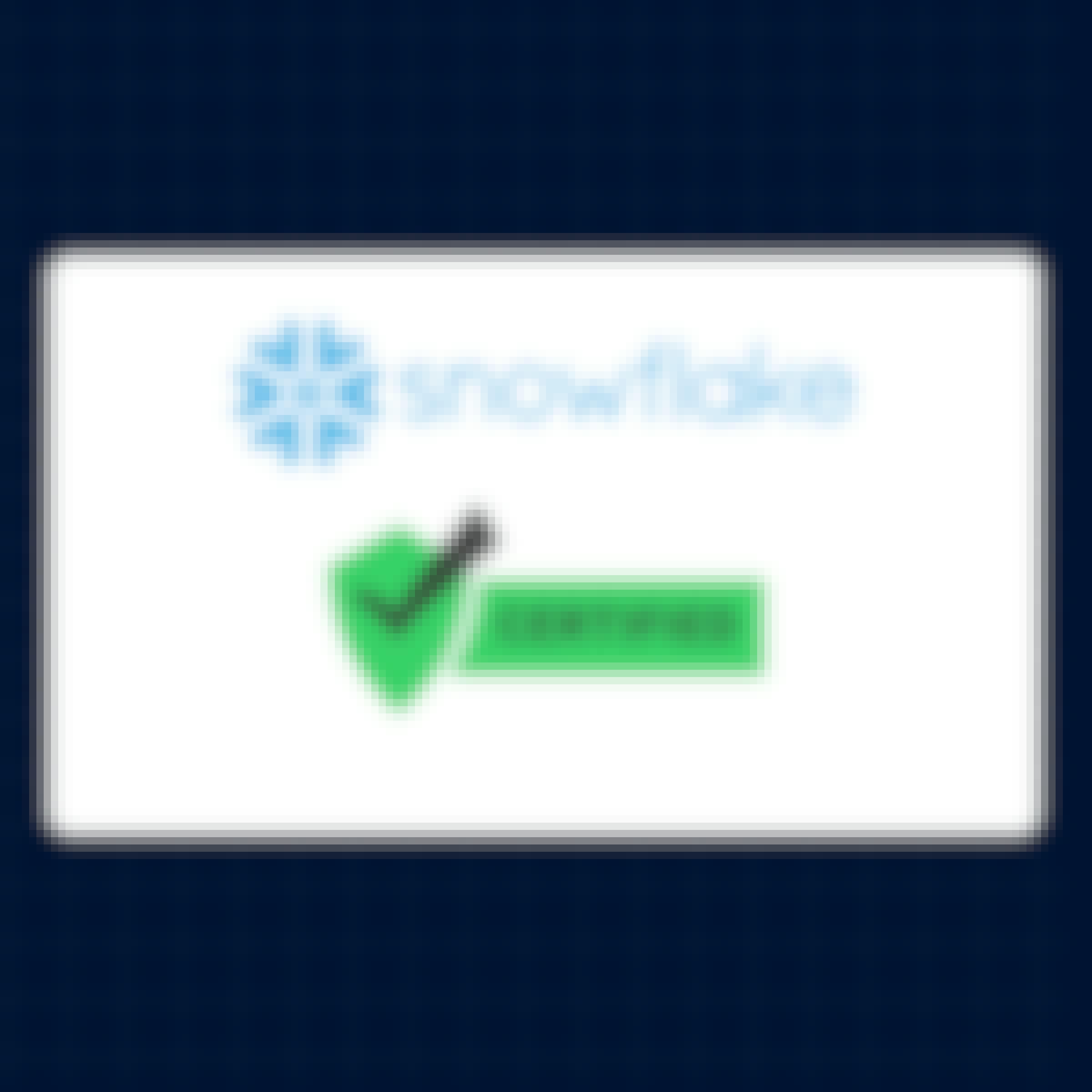

Board Infinity
Skills you'll gain: Performance Tuning, Data Warehousing, Identity and Access Management, Data Modeling, Data Integration, SQL, Role-Based Access Control (RBAC), Data Import/Export, Stored Procedure, Business Intelligence, Data Transformation, Cloud Storage, Cloud Computing, Data Security
 Status: Free
Status: Free
DeepLearning.AI
Skills you'll gain: ChatGPT, JSON, Generative AI, Artificial Intelligence and Machine Learning (AI/ML), Artificial Intelligence, User Interface (UI), Data Import/Export
JSON learners also search
In summary, here are 10 of our most popular json courses
- Использование языка Python для доступа к веб-данным: University of Michigan
- Core Java: Codio
- Ajax Basics: Board Infinity
- Front-End Developer: LearnQuest
- DevOps Prerequisite Course: KodeKloud
- Back-End Development with .NET: Microsoft
- NodeJS Unleashed: Mastering Backend Development: EDUCBA
- Coding for Designers, Managers, & Entrepreneurs III: University of Virginia
- Python Development with ChatGPT: Fullstack App Development: Coursera Project Network
- Building HTTP APIs with Spring: Vanderbilt University











